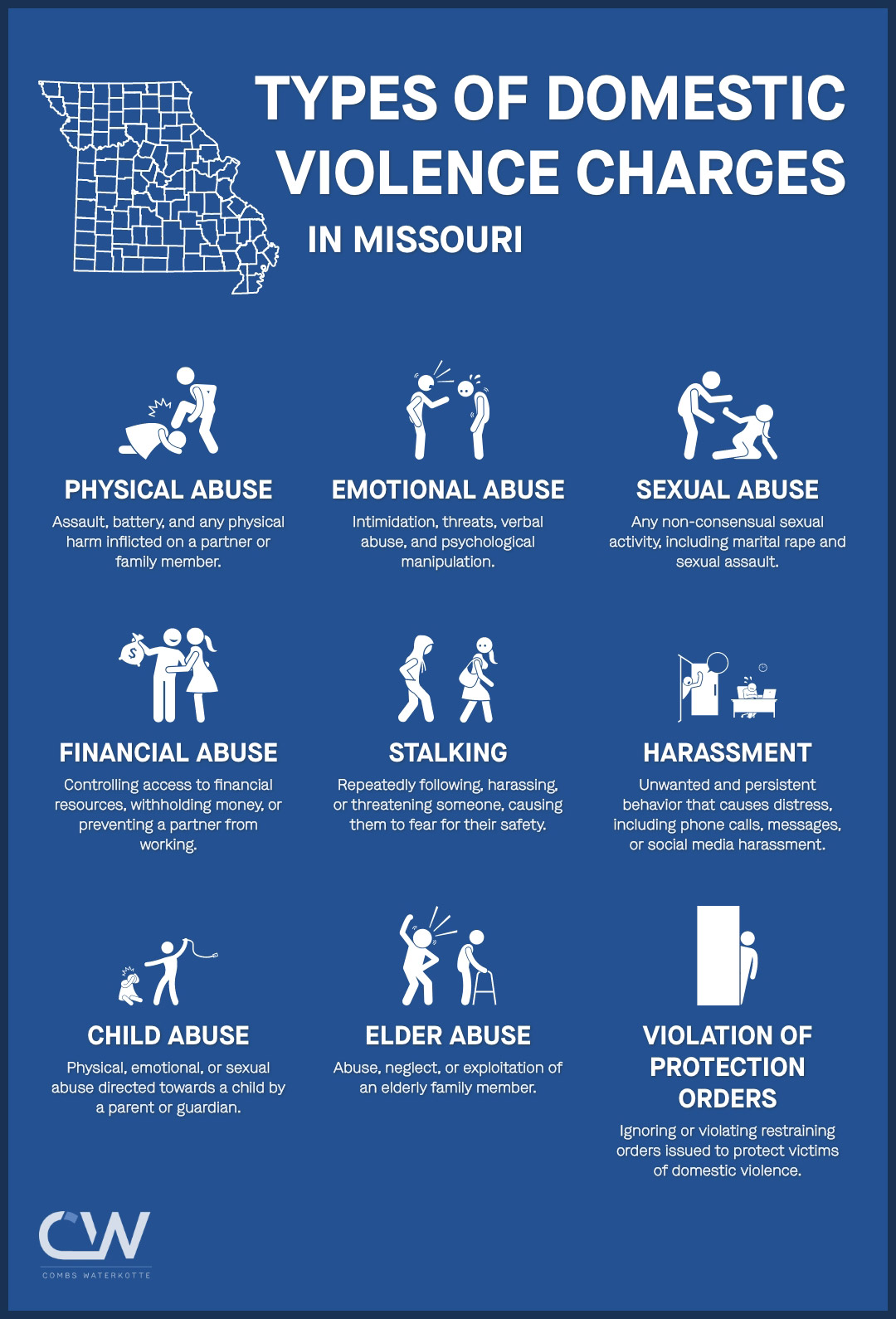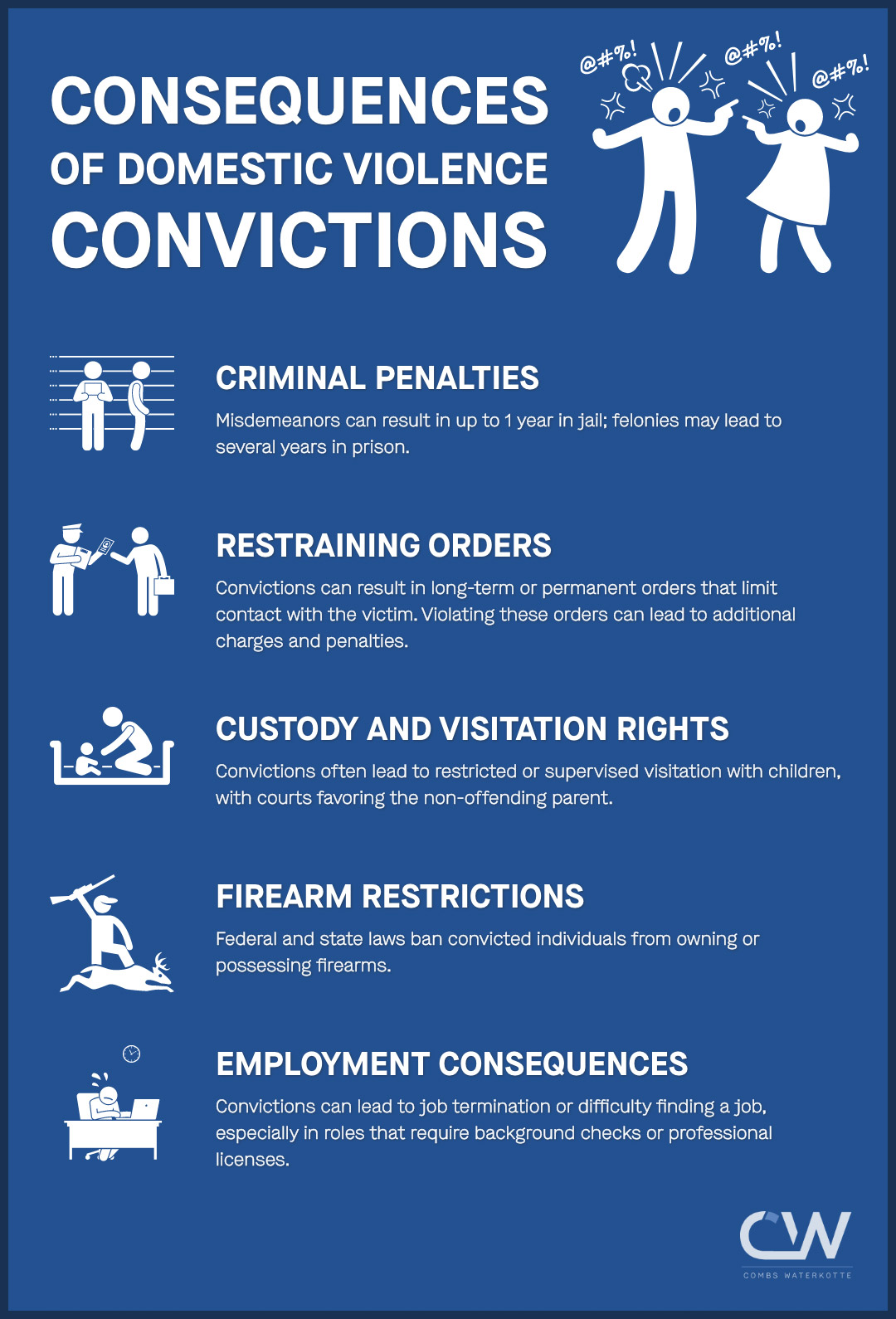Additional Links
- Criminal Lawyers With Payment Plans
- Everything About Domestic Violence Defense Charges in Missouri
- Common Defenses to Domestic Violence Charges
- What Can I Do if I Was Falsely Accused of Domestic Violence?
- A Complete Guide to Missouri Domestic Violence Laws
- Can Domestic Violence Charges Be Reduced?
- Missouri Criminal Defense Resources
- Legal Books
- Legal Videos
- Defending Freedom Podcast

What Is Second Degree Domestic Assault in Missouri?
Second degree domestic assault is a felony offense under RSMo §565.073, which applies when a person knowingly or recklessly injures a domestic partner. Missouri prosecutors often pursue this charge in domestic violence cases that involve physical harm but fall short of first-degree domestic assault standards.
According to the statute, a person commits second degree domestic assault if they injure a domestic victim by:
- Knowingly causing physical injury by any means — including with a deadly weapon, dangerous instrument, or by choking or strangulation;
- Recklessly causing serious physical injury; or
- Recklessly causing physical injury with a deadly weapon.
A domestic assault conviction in St. Louis can have serious repercussions for your future. Contact one of our criminal defense lawyers today at (314) 900-HELP to protect your freedom and future.
The term “domestic victim” refers to individuals defined under RSMo §565.002 and RSMo §455.010. It can include:
- Your current or former spouse
- Someone you’re related to by blood or marriage (like a sibling, parent, child, in-law)
- Someone you live with now or used to live with
- A boyfriend, girlfriend, or anyone you’ve had a romantic or intimate relationship with
- Someone you share a child with, even if you never lived together or got married
Is second degree domestic assault a felony in Missouri? Yes — it is classified as a Class D felony, carrying a potential prison sentence of up to 7 years and a fine of up to $10,000 if convicted.


What Are the Penalties for Second Degree Domestic Assault in St. Louis?
In Missouri, second-degree domestic assault is a Class D felony under §565.073 RSMo. A conviction can result in up to 7 years in prison and a fine of up to $10,000.
Additional consequences may include:
- Supervised probation or parole terms
- Loss of firearm rights under federal law
- Protective orders or no-contact orders
- A permanent criminal record that affects housing, employment, and custody
Important: Missouri prosecutors take domestic assault charges very seriously — especially if there’s evidence of injury or past incidents. Early intervention by a St. Louis second degree domestic assault lawyer can help mitigate the penalties.

Can Second Degree Domestic Assault Charges Be Reduced in Missouri?
Yes — depending on the facts of your case, second degree domestic assault charges can sometimes be reduced to a misdemeanor or even dismissed entirely. Prosecutors may offer reduced charges when there are questions about the alleged injury, conflicting witness statements, or a lack of prior criminal history.
Possible outcomes through skilled legal negotiation include:
- Reduction to third degree domestic assault (a misdemeanor)
- Pleading to non-domestic assault or peace disturbance
- Entry into a diversion program for first-time offenders
- Dismissal based on insufficient evidence, Fourth Amendment violations, or other issues with the state's case
Combs Waterkotte's St. Louis second degree domestic assault lawyers thoroughly investigate every case to uncover weaknesses in the prosecution’s evidence and explore pretrial options that preserve your record, reputation, and freedom. The sooner we begin building your defense, the more room we have to fight for a favorable resolution.

What Are Defenses to Domestic Assault Charges in St. Louis?
Second degree domestic assault cases often turn on conflicting statements, missing context, or misinterpreted injuries. You are not guilty just because you were arrested. Prosecutors must prove every element beyond a reasonable doubt — and that gives your St. Louis criminal defense attorney several paths to fight back.
Common Defense Strategies Include:
- Self-defense or defense of others: You were protecting yourself or someone else from harm
- False accusation: The report was made out of anger, jealousy, or custody disputes
- No serious injury: The alleged harm doesn’t meet the legal threshold for felony assault
- No intent to injure: The injury was accidental or occurred during mutual conflict
- Constitutional violations: Evidence may be suppressed due to illegal search, seizure, or Miranda issues
Important: Every case is unique. A skilled St. Louis domestic assault lawyer will review the police report, witness credibility, medical records, and bodycam footage to build a defense tailored to your version of events.

































